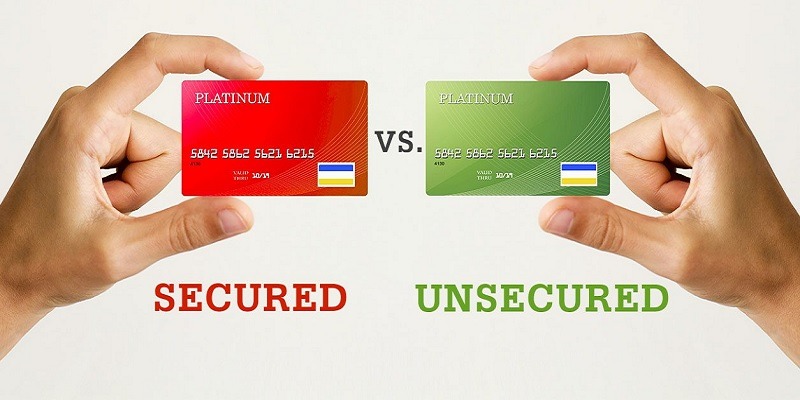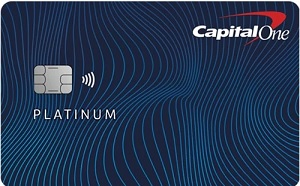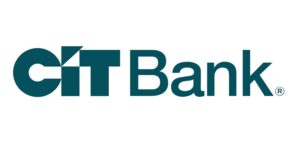
If you have little to no credit or bad credit, a secured credit card, when used properly, can help you rebuild your credit history. Secured cards are similar in many ways to traditional credit cards.
One of the major differences between the two is that the secured card requires a deposit, which is what makes it secure. However, that isn’t the only difference and you should be aware of everything before you decide to apply for a secured credit card.
What Is a Secured Credit Card?
Unlike regular credit cards, a secured credit card requires a one-time, refundable deposit before you are approved for the card. The deposit is then held by the bank to cover purchases made with the card that you have in case you stop making payments on the account.
This deposit essentially acts as an insurance policy for the bank, since secured card applicants generally have little or no credit, or are rebuilding their bad credit. Normally, when you try to open a secured card, the amount you must deposit is equal to the credit limit, ranging from $200-$2,000. It also depends on the minimum deposit requirements and how much extra you add on top.
Secured card deposits don’t cover your monthly credit card bill. You’ll need to pay the bill on time each month, and if you don’t pay the bill in full, you’ll incur interest charges, which are often higher than average credit card interest rates. Your deposit will be refunded once you’ve proved your creditworthiness by keeping the account in good standing or when you close the account.
Some secured cards may also charge an annual fee, and may add on additional fees in the form of application processing or monthly maintenance fees. All of these are on the top of normal line-up of penalty and transaction fees regular credit cards may charge.
Secured card accounts are different from debit and prepaid cards in that they are reported to the major credit bureaus, which is how these cards influence your credit history. Although they are a tool for building credit, not all secured cards are reported to the major credit bureaus.
If you are considering whether or not to apply for a secured credit card, make sure the issuer actually reports the cardholder activity to at least one of the three major credit bureaus. If they are not, you’re just signing up for a bad credit card.
 With the Capital One Platinum Secured: Unlike a prepaid card, this card will help you build credit when used responsibly, with regular reporting to the 3 major credit bureaus. You'll get an initial $200 credit line after making a security deposit of $49, $99, or $200, determined based on your creditworthiness; and be automatically considered for a higher credit line in as little as 6 months with no additional deposit needed Get access to your account 24 hours a day, 7 days a week with online banking to access your account from your desktop or smartphone, with Capital One's mobile app This card comes with no annual fee, and all the credit building benefits with responsible card use. |
Secured vs. Unsecured Credit Cards: What Are the Differences?
Outside of the deposit and possible other fees, secured cards are supported by major card networks like Visa and Mastercard and can be used like regular, unsecured cards. You know all those advertisements for travel and rewards credit cards?
Those are for unsecured cards even though they aren’t outright called “unsecured.” These more traditional cards account for most consumer credit cards on the market today.
Unsecured Cards Can Have Lower APRs and Fewer Fees
Annual percentage rates (APRs) vary greatly among all credit cards, however unsecured APRs are generally lower than the rates of secured cards. Similar to how secured cards require deposits, the higher APRs attached to secured cards act as an insurance policy for the bank. If you qualify for a secured credit card, your interest rate will likely be close to or above 25%, compared to the current national average credit card APR of 16.91%.
Those who have better credit scores and positive credit histories can also qualify for better interest rates with most unsecured credit cards. Some unsecured cards even offer promotional, limited-time 0% APR deals to qualified new card applicants.
Monthly maintenance fees are unheard of with unsecured cards and those with annual fees are often easily offset by rewards. People who don’t want to pay annual fees at all can find such unsecured cards, too.
Unsecured Card Credit Limit, APR, and Application Approval Is Based on Credit Check
When you apply for an unsecured credit card, the issuing bank will always perform a credit check. They’ll use your credit score, repayment history, and other factors such as amount of existing debt to not only determine approval, but also your credit limit and interest rate.
For secured cards, you don’t have to have minimum credit score requirements and some issuers won’t even perform a formal credit check. A lot of the times, these card will be advertised as “guaranteed approval” cards because in many cases, a secured card’s deposit and fees are enough for the bank to establish your account.
The APRs from secured cards are often the same for all approved applicants. Meanwhile, many unsecured credit card issuers will give out variable interest rates based on the applicant’s credit worthiness. The credit limits on secured cards are determined by the size of the deposit made to secure the account. For unsecured and traditional credit cards, their limits are based on creditworthiness and can be thousands of dollars higher than what you actually spend each month.
Issuers Consistently Report Unsecured Card Accounts and Activity to Credit Bureaus
If you are an unsecured credit card holder, all that information will be present in our credit report. Issuers of these types of cards will regularly report your card activity to one or more of the three major credit bureaus: Experian, Equifax, and TransUnion. This type of information will affect your credit history and FICO credit score.
However, not all secured credit card issuers report your spending to the credit bureaus. Those who qualify for this type of card but need that positive credit history on their record will need to make sure they apply for an account that reports those important details to the bureaus.
Unsecured Cards Offer Rewards
Generally, secured cards rarely offer rewards. Secured cards are designed to help people with bad or no credit build it up. Unsecured credit cards, on other hand, are often designed to attract consumers with a wide range of rewards, such as limited-time 0% APR offers, cash back, and points or miles for travel. People who like to splurge and those with excellent credit can apply for cards that rewards those qualities with even more rewards and perks.
Secured vs. Unsecured Credit Cards: What Are the Benefits?
There are benefits to both secured and unsecured cards, depending on what you need or want from a credit card.
Secured Cards Benefits
- Even those with bad credit can qualify: For those who need a way to get back on their feet, secured cards have few approval qualifications.
- Can help you build a good credit history: If you are new to credit cards, secured cards offer a deposit-protected and structured environment to build upon.
- Deposit is refundable: While paying a deposit to get a credit card isn’t convenient, as long as you keep your account in good standing and pay off your balances, you’ll get your initial deposit back.
Unsecured Cards Benefits
- Lower interest rates and fewer fees: Those with an established credit history and good-to-excellent credit scores can access cards that cost less over time than secured cards.
- Access to rewards programs: Large purchases and everyday expenses can actually earn you money back if rewards cards are used strategically.
- More cards to choose from: There are many more options and types of unsecured cards than secured cards. Whether you are looking for a card with low interest, rewards, balance transfer deals, or excellent travel benefits, you’ll have options.
- Higher credit limits: With better credit comes a higher credit limit. This can help you fund large purchases without maxing out the card or hurting your utilization ratio.
Secured vs. Unsecured Credit Cards: What Are the Drawbacks?
All credit cards should be used responsibly and applicants should read the terms and conditions carefully before opening an account.
Secured Cards Drawbacks
- Deposit requirements: To be eligible for a secured card, you must make a few hundred dollars deposit. Although this is a one time payment, it could be difficult if you’re already on a tight budget. It’s refundable, but not really convenient.
- Excessive fees: In addition to the deposit, some secured cardholders may even face non-refundable fees such as annual fees, monthly maintenance charges, and even application processing fees.
- Low credit limits: Because the secured card deposits typically become the card’s credit limit, if you can’t put down a large amount of money, you won’t have a large credit limit. This makes it even more important to watch your spending so your debt to available credit ratio doesn’t rise too high.
- Few to no rewards: Secured cards can be costly and you will most likely get anything in return besides the credit history and practice using credit.
- Not all issuing banks report accounts to credit bureaus: This is a big one. If you have a secured card to improve your credit score and history, the account needs to be reported to the bureaus. Since this isn’t a given with secured cards, you’ll need to check to make sure before applying.
Unsecured Cards Drawbacks
- Approval qualifications vary: Depending on the card, credit score requirements will vary. Even if you have been a responsible cardholder, you might not qualify for the very best rewards card. You’ll need to do some research to find a card that fits your needs and your credit score.
When Should You Get a Secured Card?
For those who are new to credit cards, have a bad credit score, or recently filed for bankruptcy, a secured card can be a great tool for you. On the other hand, because secured cards require a deposit and come with extra fees, you must make sure that your budget can support the extra costs before you think about applying.
Just like traditional credit cards, only get a secured card if you can afford to pay your card balance off in full, on time, every month. To build or rebuild your credit, you need to show that you are responsible cardholder. The amount you owe and your payment history are the two largest factors impacting your FICO credit score, after all.
Speaking of credit reports, if a secured card seems like the right fit for you, find an issuer that will report to all three credit bureaus. Putting in all that effort to improve your score won’t matter if the secured card account history doesn’t appear on your credit report.
How to Apply for a Secured Card
Similar to unsecured credit cards, you can apply for secured cards online. You will have to provide the same personal information too: Name and contact information, financial details like your income, and permission to perform a credit check, if applicable. Be prepared to tell them your bank account and routing numbers to fund your deposit and other fees as well.
How to Upgrade to an Unsecured Card
If you are not yet eligible for an unsecured card, spend the year building a good credit history with the secured card, and try your best not to overspend. Only charge what you can afford to pay off each month, on time. If you have any other debts or past due balances, be sure to deal with those accounts first.
After a couple of months of responsible secured card use, your secured card issuer may automatically convert your account to an unsecured card and refund your deposit. If this doesn’t happen, then keep an eye on your credit score and when it reaches the mid-600s and a year of credit card use is under your belt, contact your card issuer and ask if you can upgrade to an unsecured card.
 |
 |
Bottom Line
Now that you know a little bit about secured cards versus unsecured cards, it’s important that you know which is right for you. Secured cards are tools designed to help people with little or bad credit, but they seldom offer rewards.
Unsecured cards are great for people with a fair credit history because they can offer rewards whenever you make qualifying purchases. For more posts like this check out our list of bank guides and credit card bonuses here!




Leave a Reply